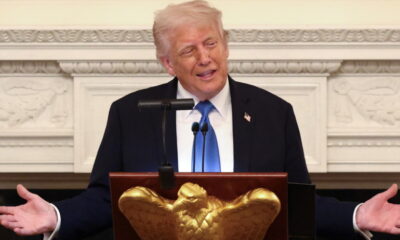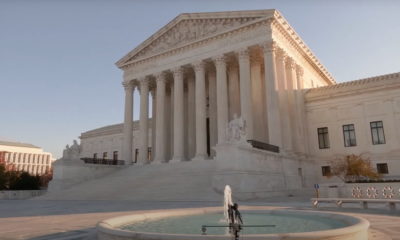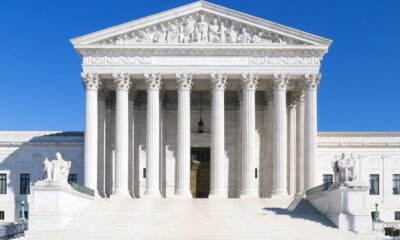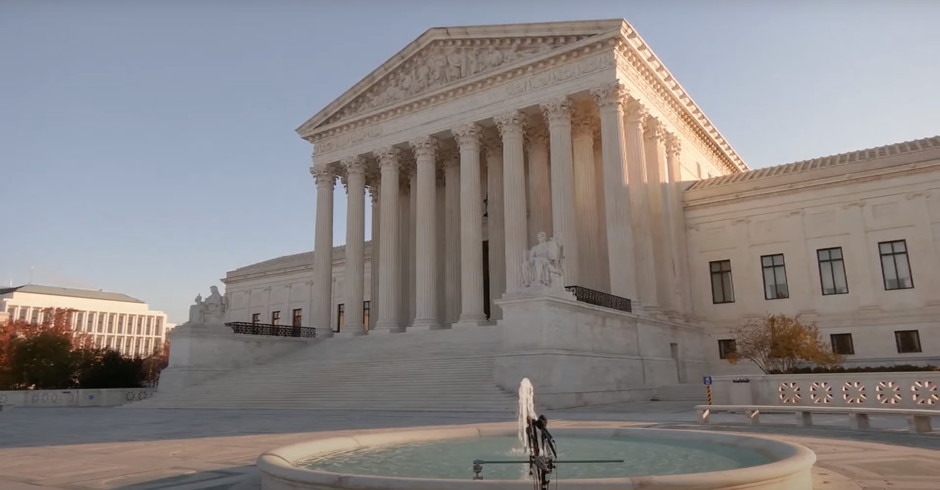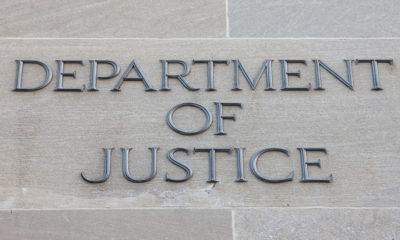News
‘Time to Go’: Internet Reacts to Chris Matthews Abruptly Exiting MSNBC Amid Criticism and Sexist Behavior
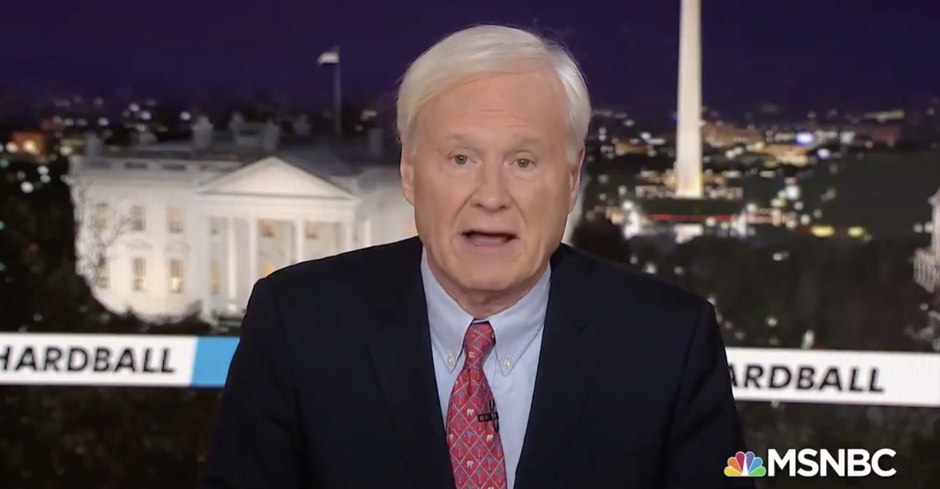
Longtime anchor Chris Matthews, an on-air fixture at MSNBC since 1997, abruptly resigned from the network amid criticism about remarks he made about Sen. Bernie Sanders and remarks he made to Sen. Elizabeth Warren. He also was highly criticized after journalist Laura Bassett revealed Matthews behaved in appropriately when she was a guest on “Hardball.”
As the AP reported, Bassett wrote at GQ:
“In 2016, right before I had to go on his show and talk about sexual-assault allegations against Donald Trump, Matthews looked over at me in the makeup chair next to him and said, ‘Why haven’t I fallen in love with you yet?’ When I laughed nervously and said nothing, he followed up to the makeup artist. ‘Keep putting makeup on her, I’ll fall in love with her,’” Bassett wrote. “Another time, he stood between me and the mirror and complimented the red dress I was wearing for the segment. ‘You going out tonight?’ he asked.”
On Twitter she reacted to his exit.
No, I have more to say than that. Since calling out Chris Matthews, this week has been really rough. The harassment has been invasive, cruel and personal. And it’s all worth it if he will never have the platform to demean and objectify us again. https://t.co/YS1FxW25zt
— Laura Bassett (@LEBassett) March 3, 2020
Here’s Matthews’s short statement.
Chris Matthews announces his immediate retirement from #hardball on MSNBC. pic.twitter.com/CtRschY14G
— Keith Boykin (@keithboykin) March 3, 2020
And Steve Kornacki was left to pick up the rest of the show:
The most awkward part of Chris Matthews quitting on live TV was when @hardball came back from break and @SteveKornacki had no idea what to do. pic.twitter.com/pJZK0SFOQp
— Matt Wilstein (@mattwilstein) March 3, 2020
Some on social media decided it was “time to go” for Matthews, some offered good wishes:
Chris Matthews was ok in his prime. Sad to say alot of men in this vintage, start to lose their crap in obvious ways. Some of the anti Bernie commentary has been quite strident. No comment re apporop’ness around women but if true, definitely time to go. https://t.co/PjhP250RoN
— Cara Mia (@CaraMia200) March 3, 2020
Did Chris Matthews just retire ON AIR??
— Elie Mystal (@ElieNYC) March 3, 2020
Chris Matthews announces after talks w/ @MSNBC he’s stepping down as @HardballChris, mentioning sexual harassment charges by GQ’s @LEBassett. It was time to go. For that, and other reasons. He’d crossed the line from journalist to partisan candidate advocate in this Dem primary.
— Ron Cassie (@ron_cassie) March 3, 2020
So @ewarren has ended @MikeBloomberg and Chris Matthews this cycle and some people think she can’t beat Trump??? https://t.co/2iEE0ke3dU
— Jeff Hauser (@jeffhauser) March 3, 2020
Dear MSNBC:
There are so many women of color highly qualified for that time slot and who would bring in big audiences for your network.
Chris Matthews retiring gives you the chance to go in a powerful and new direction.
Take advantage of this moment.
— Charlotte Clymer 🏳️🌈 (@cmclymer) March 3, 2020
My friend @HardballChris ended the incredible run of Hardball with grace. I am grateful for the warmth, and generosity he and his hard-working family of producers, bookers, make-up artists and technical crew have shown me for many years. https://t.co/DNHRFFMMOb
— Jonathan Allen (@jonallendc) March 3, 2020
.@hardballchris gave me my first big TV break.
Then he became a mentor and a friend. I cannot and would never speak for other women.
But I will always be so grateful to him.
— Heidi Przybyla (@HeidiNBC) March 3, 2020
I believe @HardballChris should have been let go years ago… why didn’t NBC fire him when he said he was gonna put some of those “Bill Cosby pills” in Hillary’s water?
The answer is what the answer usually is SEXISM!
Good riddance Matthews and @MSNBC DO BETTER!— Tom D'Angora (@TomDangora) March 3, 2020
Don’t know about you but can’t think of a better person to become the next host of @hardball than @JoyAnnReid.
Do you agree?
https://t.co/BpbRu6lm0i— Fernand R. Amandi (@AmandiOnAir) March 3, 2020
What's telling about Chris Matthews' farewell comments is how he characterized his long history of sexism as simply making "compliments on a woman’s appearance." He wants this to be about something it's not
— Jessica Valenti (@JessicaValenti) March 3, 2020
Tons of exceptionally talented women of color who would be amazing to take over Chris Matthews' spot
— Meena Harris (@meenaharris) March 3, 2020
Beyond time. Credit to @ewarren for standing up to him and putting his on-air misogyny back in the spotlight, and MF-ing @LEBassett for speaking out about his backroom behavior -at great personal cost- and making this impossible to ignore: https://t.co/b6ShtXmJP1 https://t.co/tOPiAFWaam
— Jill Filipovic (@JillFilipovic) March 3, 2020
Enjoy this piece?
… then let us make a small request. The New Civil Rights Movement depends on readers like you to meet our ongoing expenses and continue producing quality progressive journalism. Three Silicon Valley giants consume 70 percent of all online advertising dollars, so we need your help to continue doing what we do.
NCRM is independent. You won’t find mainstream media bias here. From unflinching coverage of religious extremism, to spotlighting efforts to roll back our rights, NCRM continues to speak truth to power. America needs independent voices like NCRM to be sure no one is forgotten.
Every reader contribution, whatever the amount, makes a tremendous difference. Help ensure NCRM remains independent long into the future. Support progressive journalism with a one-time contribution to NCRM, or click here to become a subscriber. Thank you. Click here to donate by check.
 |



